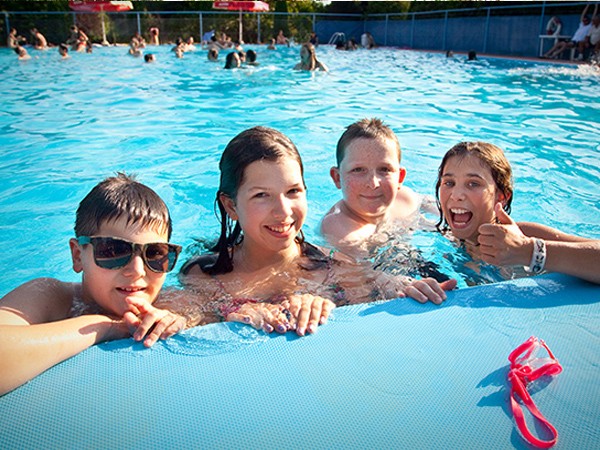
Friends, I will be out of town this Shabbat and next, so my colleagues will be sharing weekly reflections with you during that time. This week's message is from Heather Fiedler, our Federation's Associate Vice President of Jewish Education and Leadership. Shabbat Shalom. - Howard
It happens this way every year - it just sneaks up on us. Kids return from camp and summer programs end. The much-anticipated vacation is now in the rear view mirror. And, just as you think that maybe the summer will last a little bit longer, the back-to-school sales hit... and so does reality.
Parents rush to buy school supplies for the upcoming year and fill out forms for music lessons, sports and other activities.
Kids frantically complete the summer reading and homework assignments that have lingered in backpacks throughout the beautiful summer.
Grandparents and relatives mark the passage of another year, marveling at the families they have raised, knowing that the schedules will change and children will grow as rapidly as the seasons change.
And, this week, in this time of transition between the carefree-feeling summer and the frenzy of the school year, we read the Torah portion of Eikev (Deuteronomy 7:12-11:25), which also marks a period of transition. Eikev is part of a final speech given by Moses to the Israelites, reminding them that as their wandering in the desert comes to an end, they will need to remember the lessons learned along the way and apply those lessons to their new lives in the Land of Israel.
Connecting the portion to our lives today, it's almost as if we are being told to think about all that we've learned over the idyllic summer - lessons about growing up, being a family, appreciating the world around us - and somehow take it into the hectic school year: take one lesson and apply it in another setting.
In Eikev, this idea is punctuated as we read the second paragraph of the Shema, where the text explains that we are to "...teach them to your children" (Deuteronomy 11:19). Interestingly, the text does not tell us how to teach our children. Is the Torah referring to learning done with books and calculators? Or does it also refer to exploring nature, dance, or cooking - avenues that work better for some types of learners? Does teaching happen only at the front of a classroom? Or does it happen on a family trip, in summer camp or in helping those less fortunate? Finally, who is commanded to teach? Certainly those who have chosen teaching as a profession. But parents, community members, camp counselors and even friends can also be teachers.
As leaders in our community, we are obligated to ensure that Jewish education is rich and meaningful for children with a wide variety of learning styles, so that all of our children can grow from lessons learned - regardless of where or how learning takes place. Federation's Commission on Jewish Education and Leadership is committed to helping teachers, parents and other community members create exciting, lively Jewish educational experiences for all learners - so that we all see the joy and beauty of our tradition and incorporate its teachings into our everyday lives.
In reality, although the seasons change, we need not say goodbye to the pleasures of the summer. We simply need to think of what we learned from them - appreciating nature, being happy with our lot, the blessings of family and community - and bring those lessons forward to enrich the upcoming school year.
Shabbat Shalom.
Heather
Heather Fiedler
Associate Vice President, Jewish Education and Leadership
Photo credit: 2015, JDC/The Jewish Federation of North America. All other rights reserved.

0Comments
Add CommentPlease login to leave a comment